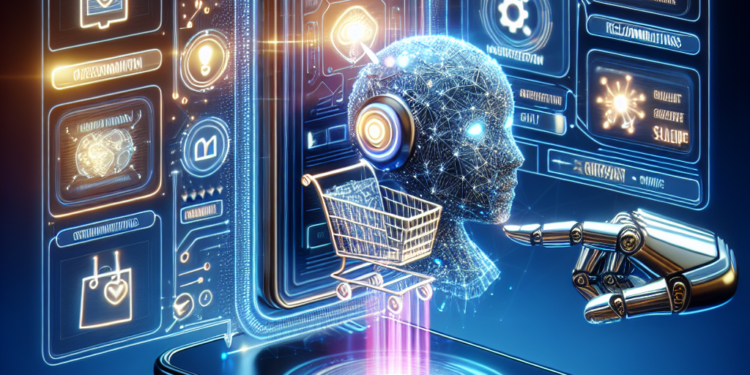In recent years, the e-commerce industry has experienced tremendous growth, with more and more consumers choosing to shop online rather than at traditional brick-and-mortar stores. This shift in consumer behavior has led to increased competition among e-commerce businesses, prompting them to find innovative ways to attract and retain customers. One such way is through the use of artificial intelligence (AI) to enhance the user experience.
AI has revolutionized the way e-commerce businesses operate, enabling them to analyze vast amounts of data and personalize the shopping experience for each individual customer. By utilizing AI, e-commerce businesses can offer personalized product recommendations, streamline the checkout process, and provide timely customer support, all of which contribute to a more seamless and enjoyable shopping experience for users.
One of the key ways in which AI enhances the user experience in e-commerce is through personalized product recommendations. By analyzing a customer’s browsing history, purchase behavior, and demographic information, AI algorithms can predict what products a customer is likely to be interested in and recommend them accordingly. This not only helps customers discover new products that they may not have otherwise come across, but it also increases the likelihood of them making a purchase, thereby driving revenue for the e-commerce business.
Another way in which AI improves the user experience in e-commerce is by streamlining the checkout process. AI-powered chatbots can assist customers with any questions they may have about products or the purchasing process, reducing the need for human customer support agents and providing real-time assistance to users. Furthermore, AI algorithms can analyze a customer’s behavior during the checkout process and identify potential bottlenecks or issues that may be causing them to abandon their cart. By proactively addressing these issues, e-commerce businesses can increase their conversion rates and reduce cart abandonment, leading to higher sales and revenue.
AI also plays a crucial role in providing timely and personalized customer support in e-commerce. AI-powered chatbots can handle a wide range of customer inquiries, from tracking orders to processing returns, without the need for human intervention. This allows e-commerce businesses to provide round-the-clock support to users, regardless of their location or time zone, thereby enhancing the overall customer experience and building brand loyalty.
Furthermore, AI can be used to analyze customer feedback and sentiment from social media platforms, review sites, and customer surveys, allowing e-commerce businesses to gain valuable insights into customer preferences and pain points. By understanding what customers like or dislike about their products and services, e-commerce businesses can make data-driven decisions to improve their offerings and better meet the needs of their customers.
In addition to personalized product recommendations, streamlined checkout processes, and top-notch customer support, AI can also be used to enhance the visual and interactive elements of e-commerce websites. For example, AI-powered image recognition technology can analyze product images and automatically tag them with relevant keywords, making it easier for customers to search for products and find what they are looking for. Additionally, AI algorithms can personalize the layout and design of a website based on a customer’s preferences, creating a more tailored and engaging shopping experience.
Overall, AI is transforming the e-commerce industry by revolutionizing the way businesses interact with customers and enhancing the user experience in ways that were previously not possible. By leveraging the power of AI, e-commerce businesses can drive sales, increase customer satisfaction, and stay ahead of the competition in an increasingly crowded marketplace. As AI continues to evolve and improve, the possibilities for enhancing the user experience in e-commerce are endless, and businesses that embrace this technology will undoubtedly reap the rewards in the form of increased revenue and customer loyalty.













